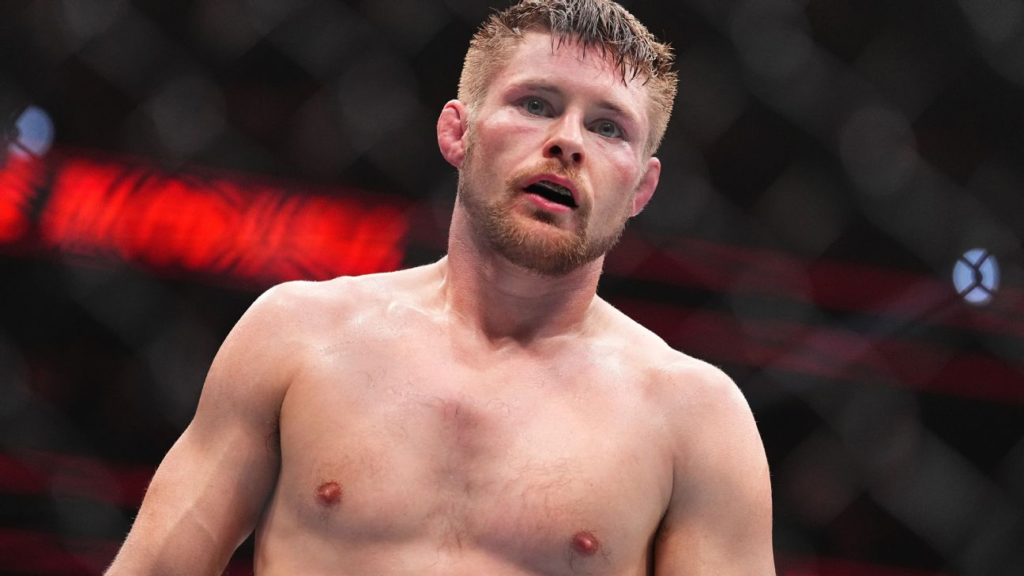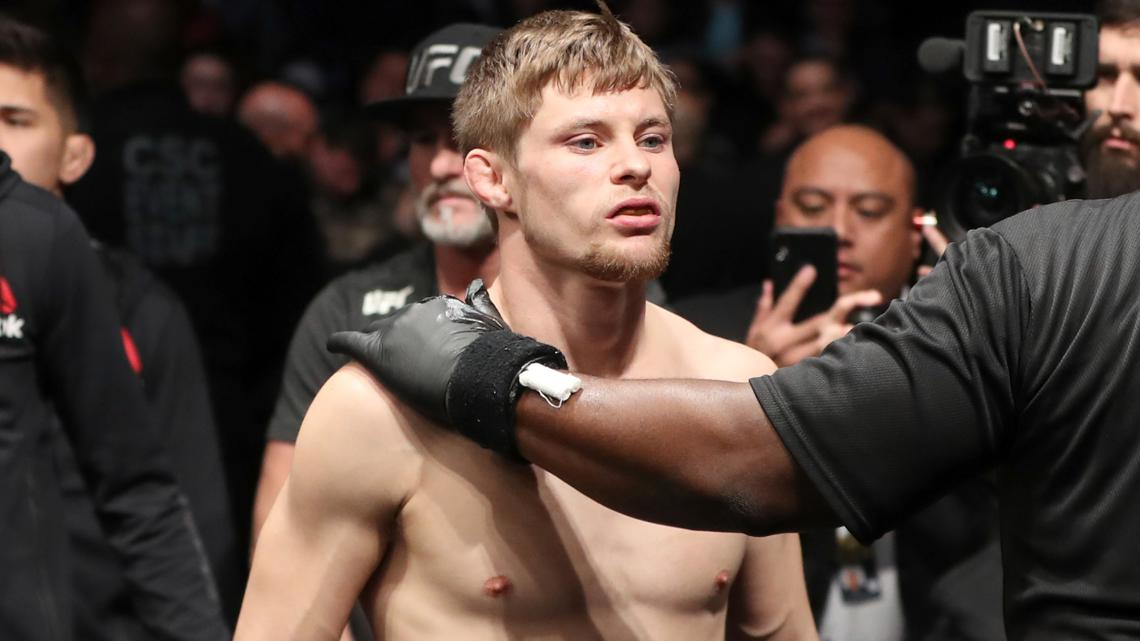Bryce Mitchell, a UFC featherweight fighter ranked 13th in the division, has ignited widespread controversy and condemnation after making incendiary remarks about Adolf Hitler.
During an appearance on the ArkanSanity Podcast, Mitchell described Hitler as a “good guy” and made statements laden with antisemitic, homophobic, and transphobic sentiments.
The comments have drawn sharp criticism from numerous organizations, public figures, and the wider MMA community, sparking debates about freedom of expression and accountability in professional sports.
The Controversial Podcast Remarks
In the ArkanSanity Podcast episode, Bryce Mitchell expressed his belief that Adolf Hitler was a “good guy,” claiming his opinion was based on personal research rather than “public education indoctrination.”
Mitchell went on to praise Hitler for his leadership and stated that the Nazi leader’s actions were an attempt to “purify” Germany by targeting Jewish communities. He also included inflammatory statements about LGBTQ+ individuals, linking them to his distorted view of Germany during the early 20th century.
“He fought for his country,” Mitchell said. “He wanted to purify it by kicking the greedy Jews out that were destroying his country and turning them all into gays.” He further elaborated on his views, making offensive remarks about gender-affirming surgeries, which he claimed originated in Germany before Hitler’s rise to power.
Read : Meghan Markle’s Staff Needed Therapy After Working on Her Podcast: Reports
Mitchell’s comments quickly gained traction online, with clips from the podcast shared widely on social media. Many users expressed outrage, while others demanded accountability from the UFC for allowing a fighter associated with the organization to make such remarks.
Backlash From Advocacy Groups and Public Figures
The comments drew sharp condemnation from advocacy groups, including the Anti-Defamation League (ADL). Jonathan Greenblatt, the ADL’s chief executive, called Mitchell’s statements an alarming display of antisemitism, homophobia, and transphobia. In a statement to the BBC, Greenblatt said, “I’m aghast at this podcast interview.

There are simply no words. In the span of just a few minutes, Mitchell manages to express antisemitic, homophobic, and transphobic sentiments. We hope the UFC will take immediate action to make clear that these ideas are noxious and have no place in the sport.”
The podcast episode has also drawn criticism from historians and educators who emphasize the importance of accurately representing the atrocities committed by Adolf Hitler and the Nazi regime.
Read : I Won’t Eat Omelette for a Week: Elon Musk After SpaceX Launch Destroys Nine Bird Nests
Hitler’s leadership was marked by the initiation of World War II, which resulted in the deaths of tens of millions, and the Holocaust, during which six million Jews were systematically murdered.
Dana White’s Response and UFC’s Stance
UFC President Dana White addressed the controversy, condemning Mitchell’s comments but stopping short of taking disciplinary action against the fighter. In a statement, White called Hitler “one of the most disgusting and evil human beings to ever walk the face of the Earth” and criticized those who attempt to defend or downplay Hitler’s actions.
“That’s the problem with the internet and social media,” White said. “You provide a platform to a lot of dumb and ignorant people.”
Despite the strong denunciation of Mitchell’s remarks, White maintained that the UFC would not take any formal action against the fighter, citing freedom of speech as the reason. He stated, “It’s free speech.
That’s the beautiful thing about this business. For all of you who hate Bryce Mitchell, you get to see him hopefully get his ass whooped on global television.”

White’s comments have sparked debates about the balance between free speech and the responsibilities of public figures. Critics argue that while freedom of expression is a fundamental right, professional organizations like the UFC should hold their representatives accountable for promoting hateful rhetoric.
Implications for the UFC and Public Figures
Bryce Mitchell’s remarks have reignited discussions about the influence of athletes and celebrities in shaping public opinion. As prominent figures, fighters like Mitchell have substantial platforms that can amplify their views to millions of fans and followers. This comes with a responsibility to use that platform responsibly, a point underscored by the widespread backlash against Mitchell’s statements.
While the UFC has defended Mitchell’s right to free speech, the incident raises questions about the organization’s code of conduct and its role in addressing hate speech.
Critics have called for clearer guidelines and stricter accountability measures to ensure that fighters and other representatives of the UFC do not use their platforms to spread harmful ideologies.

The controversy also highlights the ongoing challenge of combating misinformation and extremist ideologies. Mitchell’s remarks reflect a distortion of historical events, underscoring the importance of education and awareness in addressing such narratives.
Advocacy groups like the ADL continue to emphasize the need for robust responses to hate speech to prevent the normalization of harmful rhetoric.
Bryce Mitchell’s comments on Adolf Hitler have sparked widespread condemnation and reignited debates about the responsibilities of public figures and professional organizations in addressing hate speech.
While the UFC has defended Mitchell’s right to free speech, the incident raises important questions about accountability and the role of advocacy groups in combating misinformation and extremism.
The controversy serves as a reminder of the power and influence of public figures in shaping societal discourse. It underscores the need for education, awareness, and robust responses to hate speech to promote a more inclusive and informed society.
As the fallout from Bryce Mitchell’s remarks continues, the UFC and other organizations must navigate the complex balance between freedom of expression and the need to uphold ethical standards.

